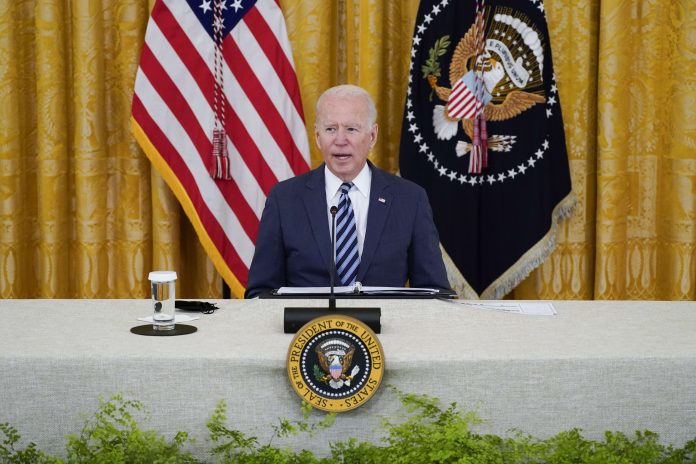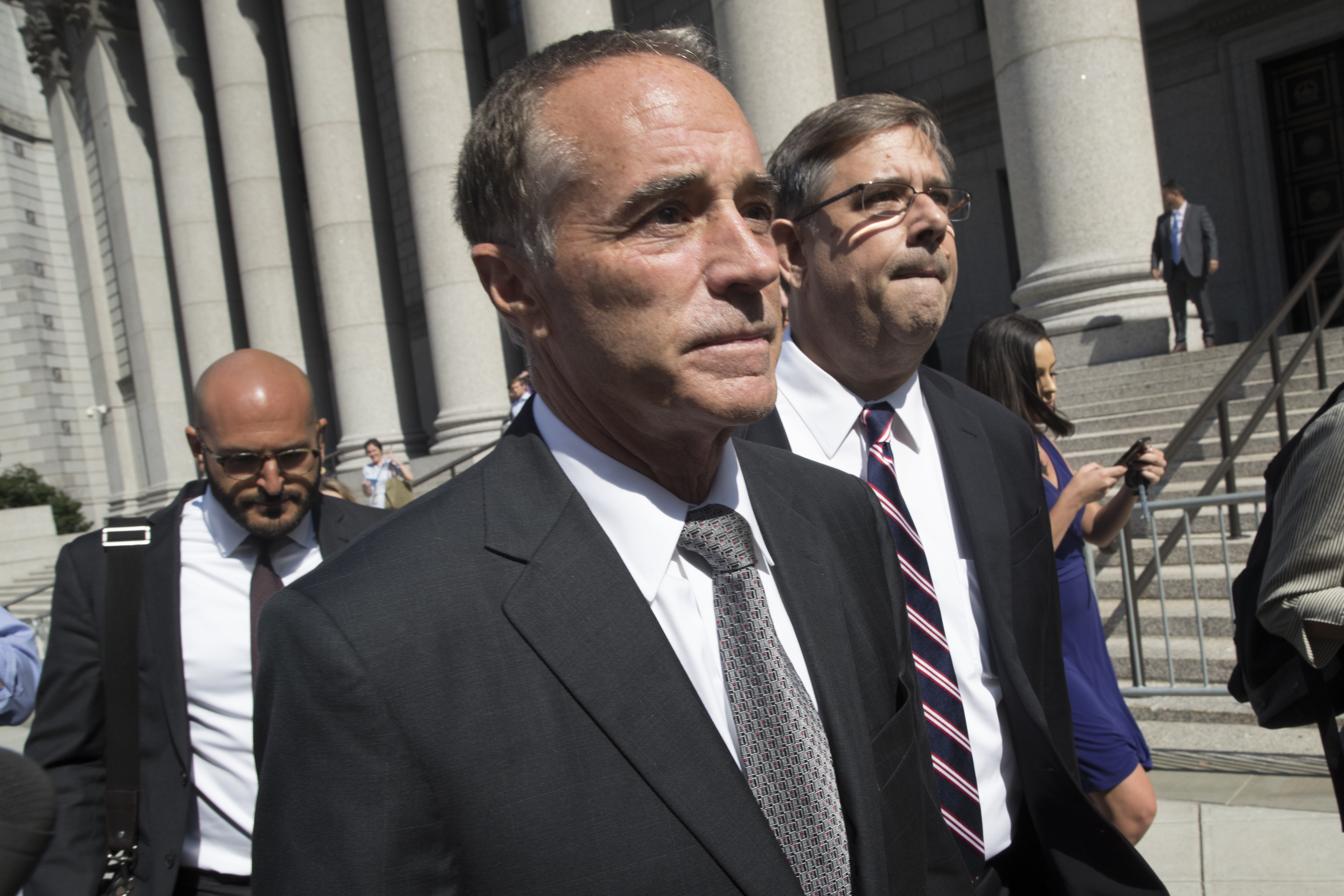
By LISA MASCARO and JOSH BOAK
Associated Press
WASHINGTON (AP) — For President Joe Biden, his federal budget is a statement of values — the dollars and cents of a governing philosophy that believes the wealthy and large corporations should pay more taxes to help stem deficits and lift Americans toward middle class stability.
In the view of his chief congressional critics led by House Speaker Kevin McCarthy, the budget is the arena where they intend to challenge the president with values of their own — slashing the social safety net, trimming support for Ukraine and ending the so-called “woke” policies rejected by Republicans.
It’s the blueprint for a summer showdown as Biden confronts Republicans over the raising the debt ceiling to pay off the nation’s accrued balances, a familiar battle that will define the president and the political parties ahead of the 2024 election.
“We just have a very different value set,” Biden said Friday after the conservative Freedom Caucus outlined its plan to slash spending.
As the president rolled out his own $6.8 trillion spending proposal in Philadelphia, Biden said he’s prepared to meet “anytime” with the House speaker, the Democratic president egging on the Republican leader.
“Tell me what you want to do. I’ll show you what I want to do. See what we can agree on,” Biden said Thursday.
But McCarthy, in his first term as House speaker, isn’t ready to present a GOP proposal at the negotiating table to start talks in earnest with the White House.
While Republicans newly empowered in the House have bold ideas about rolling back government spending to fiscal 2022 levels and putting the federal budget on a path to balance within the next decade, they have no easy ideas for how to meet those goals.
McCarthy declined this week to say when House Republicans intend to produce their own proposal, blaming their delays on Biden’s own tardiness in rolling out his plan.
“We want to analyze his budget based upon the question as to where can we find common ground,” McCarthy said. “So we’ll analyze his budget and then we’ll get to work.”
On Friday, members of the House Freedom Caucus unveiled their ideas to slash spending by returning to fiscal year 2022 levels and allowing for 1% annual growth over the next 10 years.
The Freedom Caucus wants to roll back an estimated $400 billion in Biden’s student loan relief and claw back all unspent COVID-19 funds. Overall, the group said its plan would save roughly $3 trillion.
“Simply put, the plan is to shrink Washington and grow America,” said Republican Rep. Scott Perry of Pennsylvania, the caucus chairman.
It’s a fresh take on the budget battles of a decade ago when Biden, as vice president, confronted an earlier generation of “tea party” House Republicans eager to cut the debt load and balance budgets.
What’s changed in the decade since is the solidifying of the GOP’s MAGA wing, inspired by the Trump-era Make American Great Again slogan, to turn the fiscal battles into cultural wars. The nation’s total debt load has almost doubled during that time to $31 trillion.
The new era of House Republicans see the coming debt ceiling fight as a battle for their very existence — a test of their mandate in the new House majority to push back against liberals in Washington.
Republican lawmakers grilled Treasury Secretary Janet Yellen Friday over the president’s proposal and aired other grievances about the administration.
At a House hearing, Republicans asked Yellen to apologize over calling inflation transitory in 2021. “We really should hear ‘I’m sorry,'” said Rep. Carol Miller, R-W.Va.
When Yellen was asked to justify Biden’s budget proposal, she said, “The president’s focus is on hardworking families who are struggling to make ends meet.”
As pressure mounts on McCarthy, the president is trying to steal some thunder as he rolled out a proposal this week that spotlights deficit reductions that are a centerpiece of GOP goals.
Biden’s approach is a turn-around from the start of the year when he refused to negotiate with Republicans, demanding Congress send him a straightforward bill to raise the debt limit. At the time, the president wouldn’t entertain a conversation about spending changes McCarthy committed to as part of his campaign to become speaker.
The White House’s budget plan would cut the deficit by $2.9 trillion over 10 years, a rebuttal to GOP criticism that Biden’s deficit spending to address the pandemic has fueled inflation and hurt the economy.
With his budget, Biden showed the math of how he would lower the trajectory of the national debt. Yet his approach to fiscal responsibility is unacceptable to Republicans, since it would require $4.7 trillion in higher taxes on corporations and people making more than $400,000.
The president also wants an additional $2.5 trillion in spending on programs such as an expanded child tax credit that would improve family finances.
By refusing to raise taxes, the Republicans in the House are relying almost exclusively on reductions to bring budgets into balance. It’s a painful, potentially devastating endeavor, inflicting cuts on programs Americans depend on in their communities.
“We’re getting close,” said Rep. Jodey Arrington, R-Texas, the new chairman of the House Budget Committee.
Because McCarthy has yet to release his budget, Biden has toured the country and talked to audiences about past Republican plans to cut Social Security and Medicare.
McCarthy insists reductions to the Medicare and Social Security entitlement programs that millions of America’s seniors and others depend on are off the table — and Republicans howled in protest during Biden’s State of the Union address to Congress last month when the president claimed otherwise.
But in shielding those programs from cuts and opposing any tax increases, GOP lawmakers are proposing crippling slashes to the rest of government spending that could offend voters going into the 2024 elections.
The conservative Freedom Caucus with its few dozen members is just one constituency McCarthy must balance as he tries to cobble together his ranks. The much larger Republican Study Committee is expected to roll out its ideas in April and other GOP caucuses have their own priorities.
McCarthy believes he has won a first round in the budget battles by pushing Biden to negotiate over the debt ceiling. But now the speaker faces the daunting challenge of bringing his own GOP plan to the table.
“The House Republican budget plan is in the witness protection program,” said Rep. Hakeem Jeffries, the chamber’s Democratic leader. “It’s in hiding.”



















